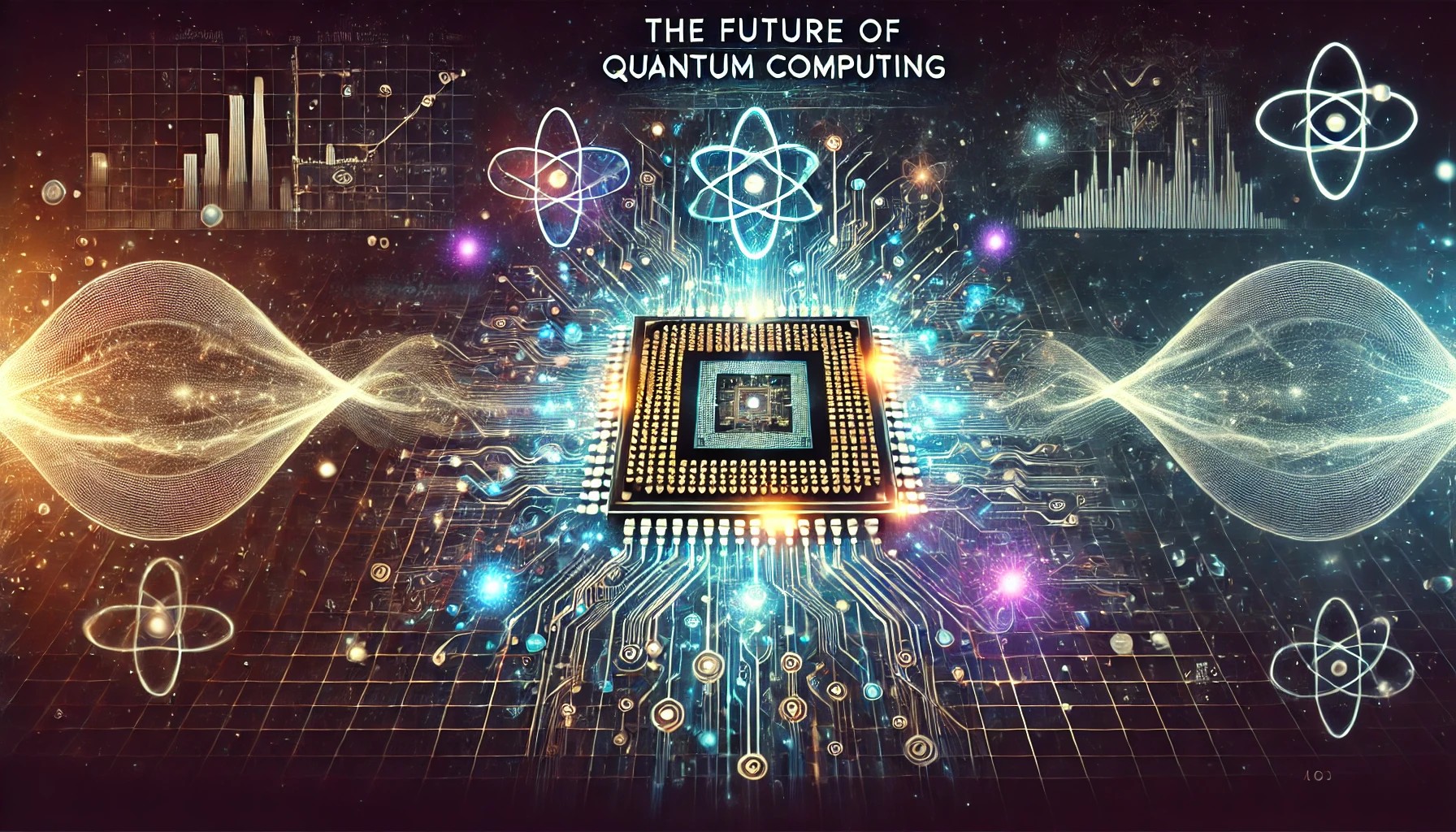Quantum computing has long been a concept confined to the realm of theoretical physics, but in recent years, we have seen it emerge as a tangible and rapidly evolving field. With breakthroughs in research, quantum computers are beginning to shift from experimental projects to real-world applications. But what does the future of quantum computing hold? In this blog post, we’ll explore the potential, challenges, and transformative impact of quantum computing on various industries.
What Is Quantum Computing?
At its core, quantum computing is a radically different approach to computation. Traditional computers use bits to store and process information, which exist in one of two states: 0 or 1. Quantum computers, on the other hand, use quantum bits or qubits, which can exist in multiple states simultaneously due to quantum phenomena like superposition and entanglement. This allows quantum computers to solve problems that would be impossible or take an impractical amount of time for classical computers to handle.
While still in its early stages, quantum computing promises to revolutionize fields such as cryptography, material science, artificial intelligence, and beyond. But before it can achieve its full potential, there are several factors to consider.
Breakthroughs in Quantum Hardware
One of the primary challenges facing quantum computing is the development of stable and scalable quantum hardware. Current quantum computers are highly susceptible to errors due to factors like qubit decoherence and noise from the environment. This makes it difficult to maintain the integrity of quantum states long enough to perform complex calculations.
However, progress is being made. Companies like IBM, Google, and Rigetti Computing are continuously improving their quantum processors. IBM has already unveiled its roadmap for building quantum computers with over 1,000 qubits within the next decade. Google, with its 2019 achievement of “quantum supremacy,” demonstrated that quantum computers could outperform classical computers in specific tasks. The race to create fault-tolerant quantum systems is accelerating, with many researchers focusing on error-correction methods to make quantum computers more reliable and accessible.
Quantum Computing in Cryptography
One of the most talked-about applications of quantum computing is its potential to break current encryption methods. Classical encryption techniques, like RSA and ECC (Elliptic Curve Cryptography), rely on the fact that certain mathematical problems are incredibly difficult to solve with classical computers. However, quantum computers could potentially solve these problems in a fraction of the time.
For example, Shor’s algorithm, developed by mathematician Peter Shor, shows that quantum computers can factor large numbers exponentially faster than classical computers. This has huge implications for cybersecurity, as it could render traditional encryption methods obsolete. The good news is that this challenge is already being addressed with the development of quantum-resistant algorithms, known as post-quantum cryptography, which aim to protect sensitive data from the threats posed by quantum computing.
Quantum Computing in Artificial Intelligence
Artificial intelligence (AI) is another field that could see significant advancements thanks to quantum computing. Quantum computers could process vast amounts of data in parallel, enabling AI systems to learn and adapt more efficiently. For instance, quantum machine learning could revolutionize tasks such as pattern recognition, optimization problems, and even drug discovery by analyzing complex datasets far more effectively than classical computers.
One of the exciting possibilities is the use of quantum algorithms to improve neural networks and other machine learning models. These improvements could lead to faster, more accurate AI systems that can tackle problems currently beyond the reach of classical computing.
Quantum Simulations in Material Science
The potential of quantum computing extends far beyond the digital world, with one of its most promising applications being in material science. Traditional computers struggle to simulate the behavior of molecules at the quantum level, which is crucial for discovering new materials and drugs.
Quantum computers could simulate molecular interactions more precisely, leading to breakthroughs in the design of novel materials with specific properties, such as superconductors or lightweight, durable materials. In the pharmaceutical industry, quantum computing could accelerate the drug discovery process by simulating how new compounds interact with biological systems, saving time and resources in the development of life-saving medications.
The Road Ahead
While the future of quantum computing is exciting, there are still several challenges that need to be addressed before it becomes widely available. In addition to improving quantum hardware and overcoming error rates, there is the challenge of developing quantum software that can unlock the full potential of these systems.
Currently, there is a shortage of quantum developers, and the field remains highly specialized. As quantum computing continues to evolve, there will be a growing need for trained professionals who can bridge the gap between quantum theory and practical applications. Collaboration between academia, industry, and government will be essential to ensure the responsible and effective development of this transformative technology.
Conclusion
The future of quantum computing is bright, with vast potential to reshape industries from healthcare and finance to energy and AI. Although challenges remain, the progress being made in hardware development, cryptography, and quantum algorithms signals that the quantum revolution is already underway. As we continue to explore and harness the power of quantum mechanics, the possibilities are boundless, opening doors to innovations that were once thought to be science fiction.
Quantum computing will not only change the way we compute; it will unlock new realms of possibility for humankind, propelling us into an exciting new era of technological discovery.
